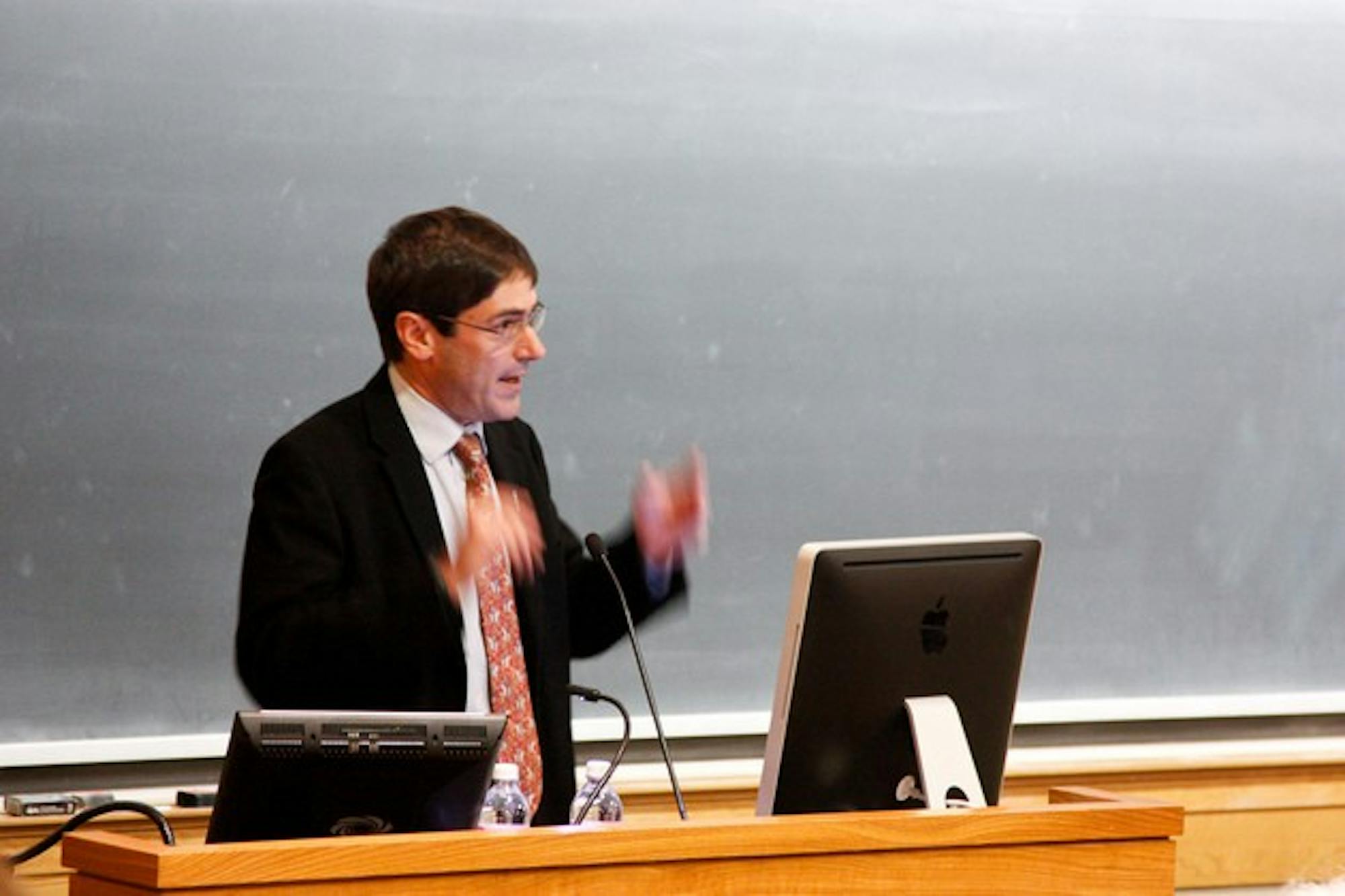Harris, who has been covering climate change for 30 years, said he has traced the progression of the way information about global warming has been communicated to the public.
At first, people spoke of global warming only in the abstract, he said. For a short time, scientific consensus seemed to shift the debate to actual policy considerations, but skeptics soon brought the discussions back to where they started.
"Why, when the scientific community was so well established and it had such clear compelling thoughts about this why all of the sudden did we shift back to that debate about science?" Harris said.
The answer lies in a "psychology of denial" that has taken hold of both the public and journalists in response to the immensity of the problem of climate change, Harris said.
"The easiest thing to do if you're confronted with something that is really big, and hard, and difficult is to deny it," he said.
Harris added that this mind set is not an isolated occurrence, pointing to the growing number of Americans who do not believe that humans have played a role in global warming, and to the 20 percent who assert that climate change is not happening at all.
This trend is reversible if the public starts to question the information they receive and its sources, Harris said.
Misconceptions about global warming gain large audiences because of the Internet, particularly the information spread through blogs, according to Harris. When traditional media outlets cover these misconceptions, the public perceives them as fact, despite the lack of evidence and research supporting the authors' claims, he said.
Harris discussed several misconceptions perpetuated by both sides of the climate debate, including the claim that Hurricane Katrina was caused by climate change and the belief that global warming is a conspiracy formulated by the scientific community to make money through fraud.
"Not only is the climate changing, but the information climate of the planet is changing," he said.
Harris said climate change activists are relying on arguments that will not persuade the government to act. Instead of focusing on telling people about the potential effects of global warming, which has repeatedly been ineffective because of outcries from legislators who do not believe in climate change, proponents of policy change should talk about increasing green jobs, competing with China's clean technology and energy security, he said.
"If you frame it the right way, you can get action in Capitol Hill," he said.
Although growing research in the field of climate change tends to increase uncertainty about exactly how much carbon dioxide in the atmosphere causes specific temperature increases, scientists should focus on creating more detailed climate models not on making the public fear global warming, Harris said.
"This is hard to say, but I think it may be true: maybe worry a little less about getting the message to the public," he said. "To some extent, that's backfired a little bit. The message has become more shrill and more strident."
Harris's talk "Covering Climate Change in a Changing Media Climate" was part of the Great Issues Lecture series. The event was one of several lectures this year focused on the theme "Speak Out and Listen Up," sponsored by the Dartmouth Centers Forum.




